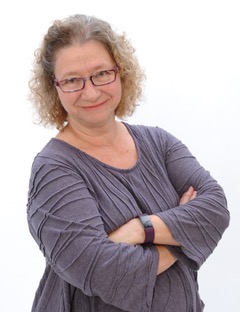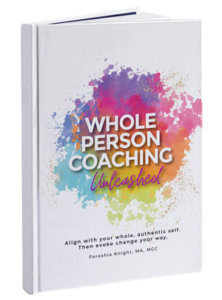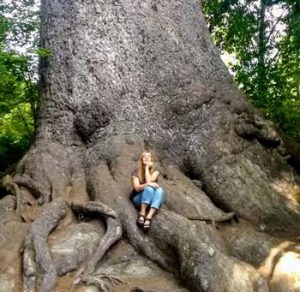“As you grow older, you will discover that you have two hands — one for helping yourself, the other for helping others.” — Audrey Hepburn.
Fausta’s journey mirrors the experience of many of us who want the things we’ve always dreamed about. After working for more than 20 years as a professional therapist, serving clients who had experienced trauma, she relocated to Savannah, GA. It had always been Fausta’s dream to live near the ocean. But after making the move, she discovered her therapy license didn’t transfer as she’d expected.
That’s when inspiration hit.
Fausta had dipped her toes in the world of professional coaching after working with an executive coach provided by a former employer. Through that experience, she recognized an opportunity. Pivoting with her current training and folding it into a coaching practice, she now serves other caring professionals who feel overwhelmed and struggle with the tremendous weight of helping their clients cope with trauma.
“They’re waking up at 2 a.m. thinking about their clients or their patients,” Fausta says of her clientele. “They are thinking about them on the weekends. Essentially, they can’t leave the job at work anymore. They’re starting to feel like they’re losing themselves in other people’s pain, [like] they can’t even take care of themselves anymore.”
But the lessons Fausta and Feroshia address are far more universal, especially in light of the increased focus on work-life balance.
“People are beginning to recognize that they need to practice self-care,” Fausta says. “[But it has] become a commercialized thing, so I need to ‘buy products to practice self-care’. That’s not really what we need. The first thing I want to do is help people find their space to think again, which is why I called my site Fausta’s Place to Ponder.”
This personal rediscovery is only the first step in a much more comprehensive program of self-care, according to Fausta. Once you’ve decided what you need, you begin to see how you can engage in the work you do differently. Sometimes that means recognizing it’s not just about taking care of yourself. Sometimes it’s about looking at what within the system might need to change to support the people that work there.
“I didn’t want to end up just doing therapy and calling it coaching,” Fausta says. “I wanted to learn what coaching was really about. What I’ve discovered is that, while at one time in my life I have to confess I might have thought it was therapy-like, it’s not. It really is different. And I love that.”
Today Fausta primarily supports her clients one-on-one. But she’s already looking for ways to make an even more sustainable impact at the organizational level by initiating coaching cultures – essentially creating supportive communities within a system.
Join Feroshia Knight (Master Coach and founder of Coach Training World) and Fausta Luchini, a leading holistic life coach in Savannah, Georgia who has successfully leveraged coaching and own unique experience as a therapist into her own signature coaching process.

Key segments in the discussion include:
- 5:26 – Life-changing opportunity that comes after connecting with who you are (it also has the added benefit of preventing stress!)
- 9:03 – One of the most beneficial practices – often missing in our culture – to discover what you need and what needs to happen next (applicable to all of us, not just caring professionals)
- 13:08 – Biggest difference between therapy and coaching
You can learn more about Fausta’s Services here.

Subscribe to our YouTube channel for more insights into the world of holistic coaching and the business of change. Join in the dialog with leading coaches who are using their vast array of individual skills and knowledge as they work within a diverse range of specialized industries
To learn what separates Whole Person Coaching from other forms of the practice, you can visit us at: https://coachtrainingworld.com




I love your opening comment Fausta of Audrey Hepburn. I’ve always experienced you as a “safe haven” for anyone w/much warmth and understanding. I think this niche you’ve carved out for yourself to be of service to therapists (or other care providers) in the trenches is really needed. And of course anyone would benefit from spending time w/you.
Thank you so much!!
Wise words and helpful ideas presented in a clear and engaging way by Fausta.